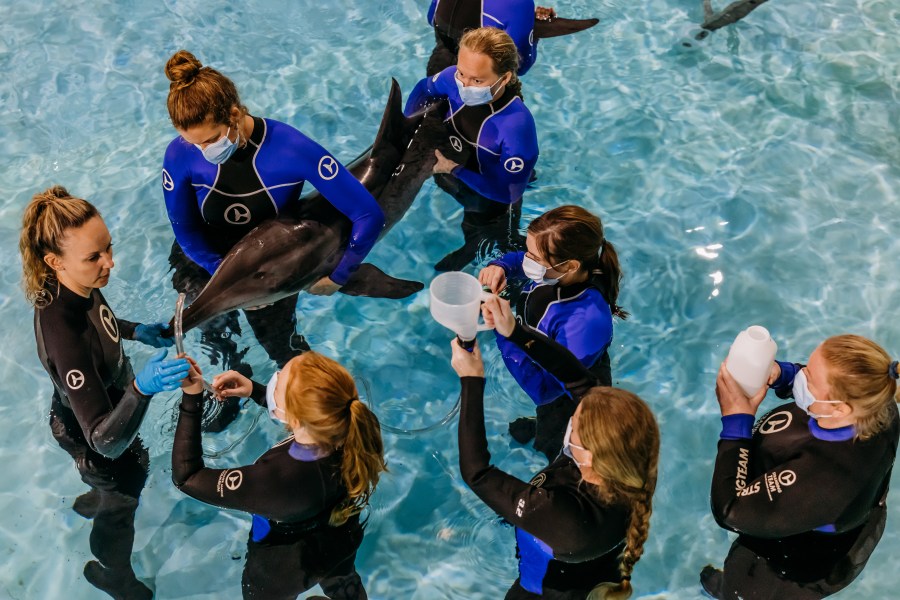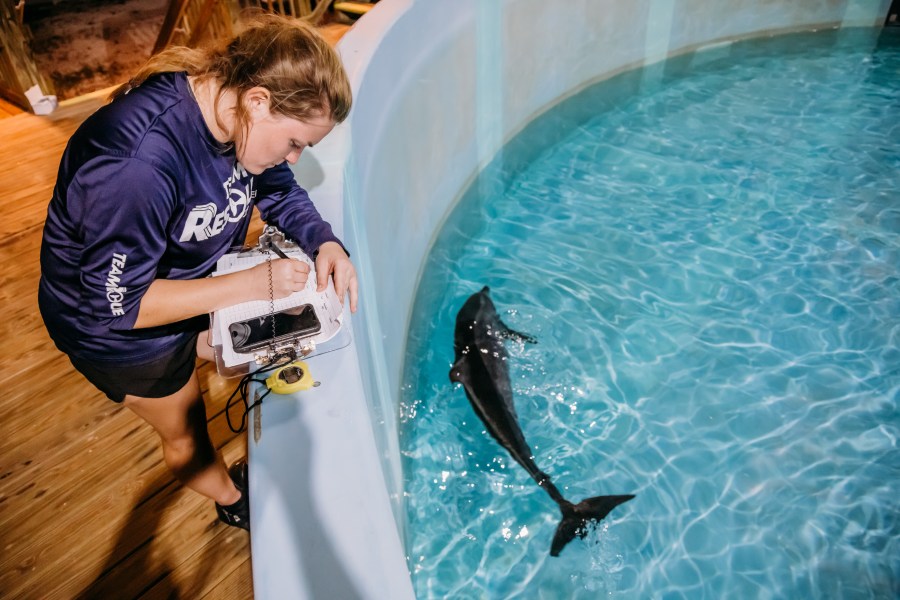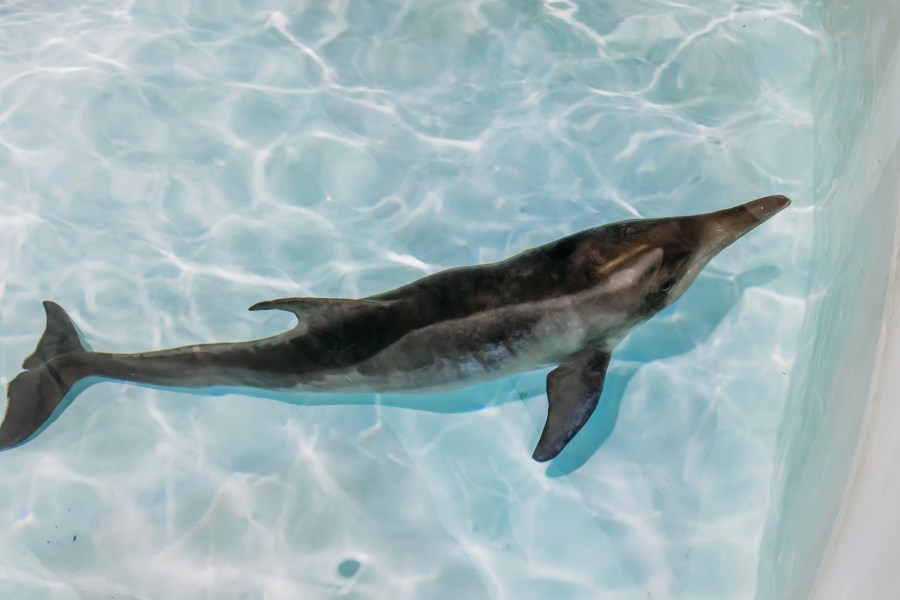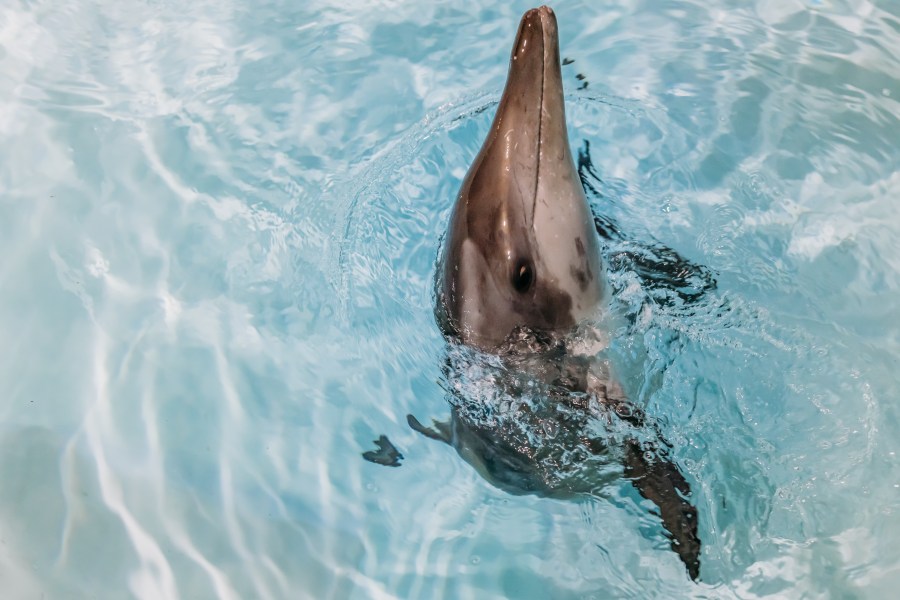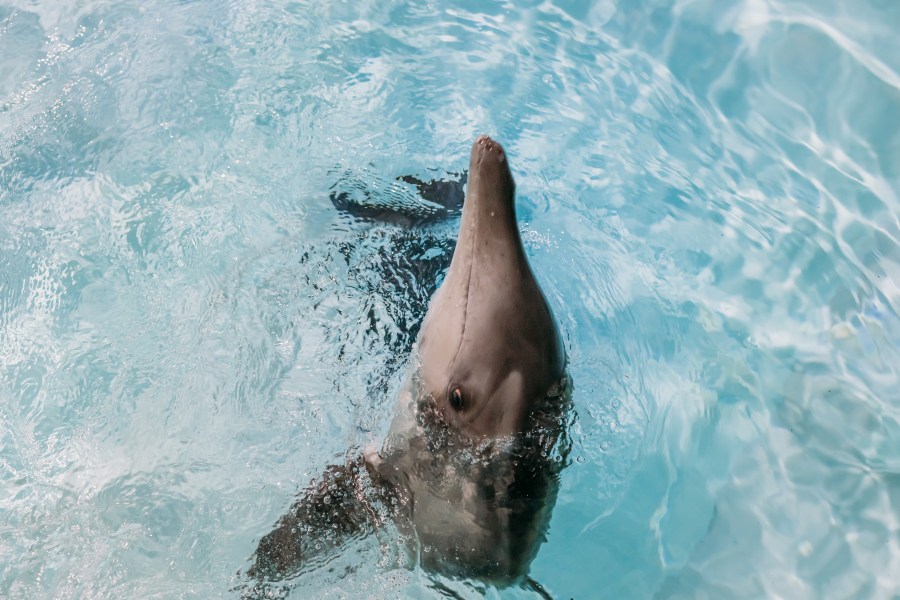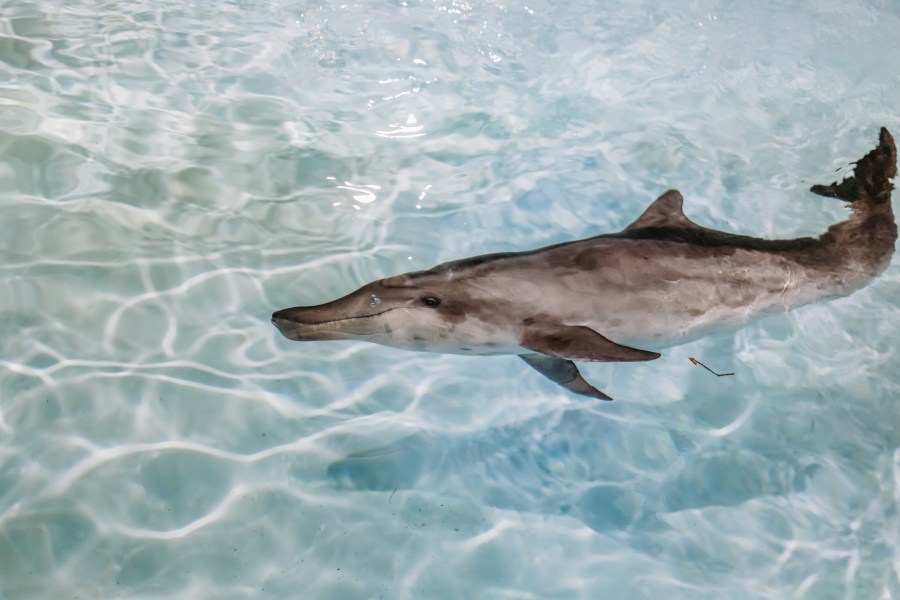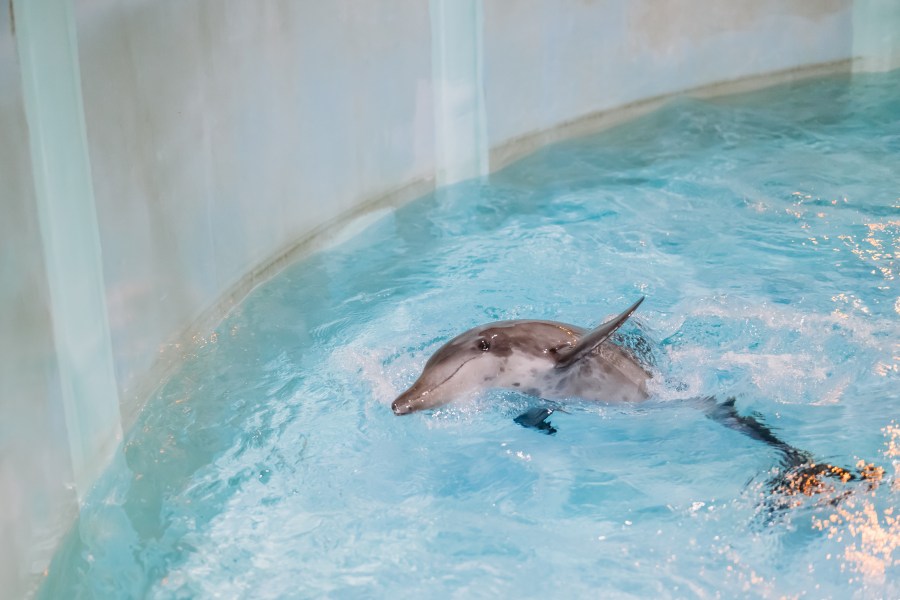CLEARWATER, Fla. (WFLA) — A young rough-toothed dolphin found stranded on Longboat Key last week was brought to the Clearwater Marine Aquarium for some much-needed care.
The aquarium said the female dolphin was found beached on Friday, Feb. 10, around 6 p.m.
Experts with MOTE Marine Laboratory & Aquarium were called to the beach after bystanders tried to push the dolphin back into the water. After an initial assessment of the animal’s health, MOTE decided to transport the dolphin to CMA for rehabilitation at its Fred Howard Park location.
“The dolphin remains in critical condition but is stable and swimming, which is a hopeful sign,” said veterinarian Dr. Shelly Marquardt with Clearwater Marine Aquarium. “We are running full health assessments and continue to monitor the dolphin’s condition. Our goal is to determine the cause of her stranding and provide the care she needs for rehabilitation.”
Veterinary staff said the juvenile dolphin weighs approximately 156 lbs. upon intake and 198 cm. According to NOAA Fisheries, this species can get up to 8.5 feet long, 350 lbs., and have a lifespan of 36 years.
CMA said rough-toothed dolphins are commonly found in tight-knit groups varying in size of 10 to 20 individuals but have been reported in groups of up to 100. The dolphins even associate with other species, including short-finned pilot whales, bottlenose dolphins, pantropical spotted dolphins, and spinner dolphins.
“This life-saving work is at the core of our mission as a working marine animal hospital, ” said CEO Joe Handy. “Our team of experts will provide round-the-clock care. We are steadfast in our efforts to rehabilitate and release this dolphin back to Florida waters. I’m proud of our highly trained professionals that provide exceptional care on a moment’s notice.”
This is the first dolphin to be rehabilitated at CMA’s Fred Howard Park rehab facility since 2020, when Rudolph, another rough-toothed dolphin, was transported and rehabilitated there.
If the public sees a marine mammal in distress, do not intervene, and call trained responders at (877) WHALE-HELP. The public should remain at a safe distance, and if conditions allow, take photos to share with biologists once they arrive on scene.

